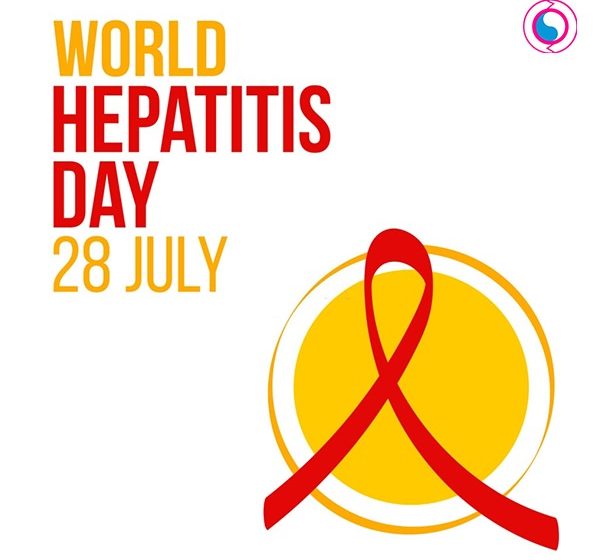World Hepatitis Day.

There are more than 500 million people in the world (more than the population of the USA and Russia combined) infected with hepatitis B or C at this moment. The disease kills around 1.5 million people every year.
What’s more, most infected people have dormant symptoms and don’t know that they have the condition, which makes prognosis and treatment even more difficult.
World Hepatitis Day is a global initiative that attempts to increase awareness of hepatitis. Here’s all you need to know about World Hepatitis Day.
World Hepatitis Day 2021
World Hepatitis Day is observed on July 28 annually and is an official global public health campaign, created by the World Health Organization (WHO). Every year on World Hepatitis Day, hepatitis patients and nonprofits take part in awareness events that include conducting workshops, raising funds, etc.
Some actions and themes that are highlighted on World Hepatitis Day are:
- Raising awareness of different types of hepatitis, along with their transmission and symptoms
- Promoting prevention, screening, and control of the disease
- Increasing coverage of the hepatitis B coverage
- Coordinating with global hepatitis groups
History of World Hepatitis Day
The inaugural World Hepatitis Day (known as the International Hepatitis C Awareness Day when it first began) was observed on October 1, 2004. However, different hepatitis groups continued to celebrate the day on disparate dates. To ensure a common date, the World Hepatitis Alliance decided May 19 to be the official World Hepatitis Day. Later, a resolution was adopted that changed the date to July 28 as it is now.
Hepatitis: Types, Symptoms, and Diagnosis
Hepatitis is a condition that happens when the liver gets inflamed. Most hepatitis conditions are caused by a viral infection, but other causes also exist.
The liver is the most crucial organ in your body. It is responsible for numerous functions, such as bile production, bilirubin excretion, filtering of toxins, blood protein synthesis, glycogen storage, and carbohydrates breakdown.
Hence, liver disease can cause severe health problems and adversely impact the quality of life.
The types of viral hepatitis are:
- Hepatitis A
- Hepatitis B
- Hepatitis C
- Hepatitis D
- Hepatitis E
Each hepatitis type is caused by a virus of the same name. Therefore, the hepatitis A virus causes hepatitis A, the hepatitis B virus causes hepatitis B, and so on.
Two known causes for non-infectious hepatitis are:
- Excessive consumption of alcohol or other toxins such as certain medications.
- Certain autoimmune disorders
Almost all forms of hepatitis cause similar symptoms, such as:
- Fatigue
- Dark urine
- Pale stool
- Loss of appetite
- Abdominal pain
- Yellowing of skins and eyes (jaundice)
- Unexplained weight loss
- Flu-like symptoms
We can reduce their risk of contracting hepatitis by maintaining proper hygiene, getting vaccinated, and drinking alcohol in moderation. If left untreated, chronic hepatitis B or C can develop into chronic liver disease, cirrhosis, and liver cancer.
Final Thoughts
Certain hepatitis conditions can go undiagnosed for years and cause serious complications. Therefore, it’s crucial to look out for any symptoms of hepatitis. In case you notice any symptoms, get in touch with your doctor. This World Hepatitis Day, you can increase awareness of hepatitis among your friends and family members.



